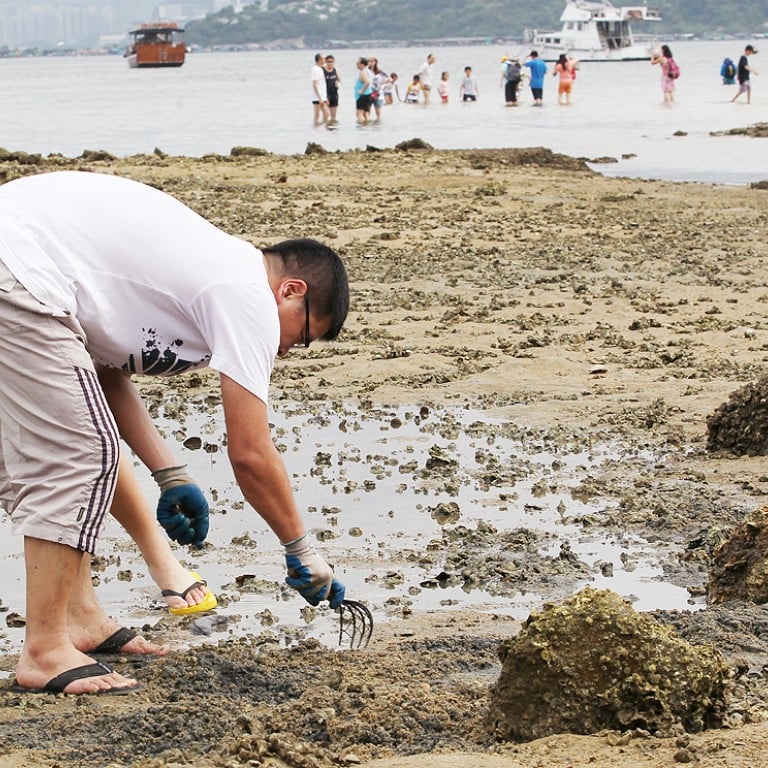
Artificial beach in Lung Mei gets green light despite environmental worries
Green campaigners against an artificial beach at Lung Mei lose challenge against the government's refusal to revoke a permit for works to begin
Plans to build a man-made beach at Lung Mei in Tolo Harbour cleared a legal hurdle yesterday, when the courts dismissed a judicial challenge filed by green activists striving to protect the local ecology.
The activists vowed to consider other options to preserve the coastal area in Tai Po, although they had not decided whether to appeal against the ruling.
"We are extremely dismayed by the judgment," Ho Loy, who lodged the judicial review on behalf of the Save Lung Mei Alliance, said after the Court of First Instance delivered its verdict.
"As for whether [further] legal action is the best option, we'll have to study it as a team first, but if we can find a better way, we will definitely choose that."
The idea of an artificial beach at Lung Mei came from Tai Po District Council, which wanted to cater for residents without access to a bathing beach. It will stretch for 200 metres, with room for 4,000 swimmers.
Activists doubt the ecological value of the site has been properly assessed, after they registered sightings of a rare seahorse and rare species of fish in the area.
Their application for the judicial review came long after the Environmental Protection Department issued a permit back in 2010 for works to start and after lawmakers had approved project funds of HK$200 million in 2012.
Before turning to the courts, the alliance last year sought to get the Environmental Protection Department head and the chief executive in council - meaning acting in consultation with the Executive Council - to exercise their powers to cancel the permit.
One of the arguments raised by the alliance was the lack of a specific ecological evaluation on a rare creature known as the spotted seahorse in an assessment of the coast approved by the director in 2008.
The absence of such an evaluation made the environmental assessment "incomplete, misleading and wrong". The project could result in more adverse impacts on the local ecology, the alliance said.
Yesterday, Judge Thomas Au Hing-cheung dismissed Ho's challenge of the refusals by the director and the chief executive in council to revoke the permit.
In a 48-page written judgment, Au said their refusals were neither illegal nor unreasonable.
He said an assessment of the seahorse was not a mandatory requirement under the law and the director had made a professional judgment on the need for it.
Au also said the chief executive in council had considered all opinions presented to it in coming to the conclusion that the beach project would not adversely affect the ecology of Lung Mei.
The Civil Engineering and Development Department said it "noted" the judgment, which it believed could further establish the "legality" of the project and ease public concerns about it.
"We will continue to monitor the situation, and push ahead with the construction as fast and as practically as possible," a spokeswoman said.
"We will also assess the impacts of the judicial review on the costs and work progress."
A spokesman for the Environmental Protection Department said it welcomed the verdict.

